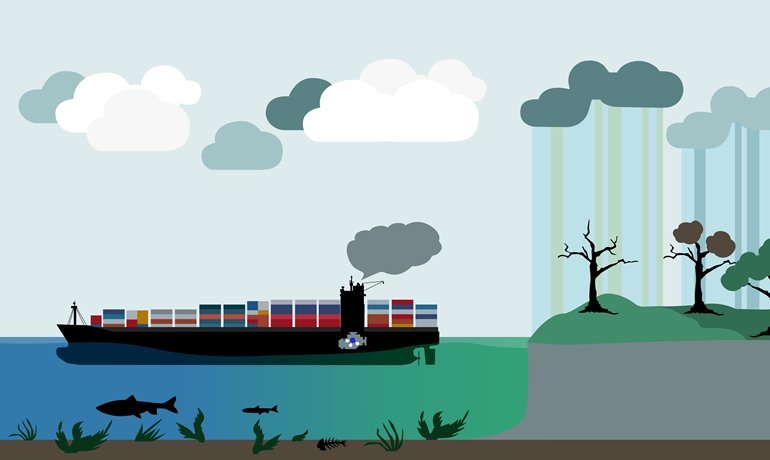
The use of ammonia as a ship fuel could contribute to eutrophication and acidification, due to ammonia leakage and emissions of nitrogen oxides.
One of the possible emissions is laughing gas, which is also a greenhouse gas with a much higher warming impact than carbon dioxide.
Switching to ammonia as a marine fuel, with the goal of decarbonization, can instead create entirely new problems. This is shown in a study from Chalmers University of Technology in Sweden, where researchers carried out life cycle analyses for batteries and three electrofuels including ammonia.
Eutrophication and acidification are some of the environmental problems that can be traced to the use of ammonia – as well as emissions of laughing gas, which is a very potent greenhouse gas.
In the search for viable fossil-free marine fuels, ammonia has been on the agenda for several years as one of the strongest alternatives. Ammonia (NH3) is a carbon-free fuel and has the advantage of a higher energy density than, for example, hydrogen.
It can also be liquefied fairly easily although it is a gas at standard conditions. However, a significant disadvantage is that the production of electro-ammonia – which requires electricity – is very energy intensive.
Moreover, the new study shows that an eagerness to rid the shipping sector of carbon emissions, by using ammonia, might create entirely new problems instead.



